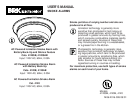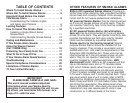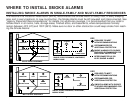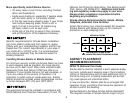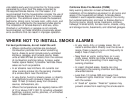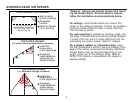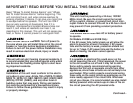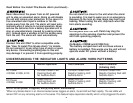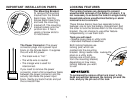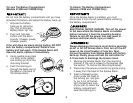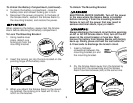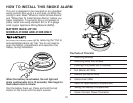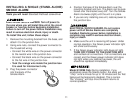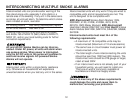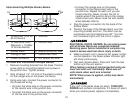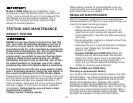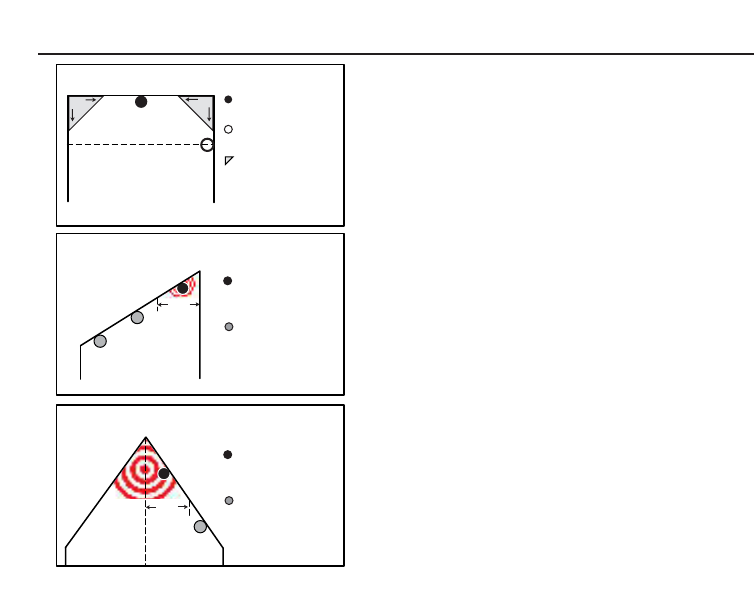
4
AVOIDING DEAD AIR SPACES
FOR STANDARD, FLAT CEILINGS
FOR PEAKED CEILINGS
(i.e. Cathedral ceilings, A-frames)
Best Location
(center of ceiling)
Acceptable
Location
Dead Air Spaces
(4" or 102 mm)
4"
4"
Do not install top of
smoke alarm lower than
12" (305 mm) from the
wall/ceiling line
FOR SLOPED CEILINGS
(i.e. great rooms, condominiums, dormers)
3 ft
Install first
smoke alarm
in this target area
If required,
install additional
smoke alarms
along the slope.
3 ft
Install first
smoke alarm
in this target area
If required,
install additional
smoke alarms
along the slope.
(0.9m)
(0.9m)
“Dead air” spaces may prevent smoke from reach-
ing the Smoke Alarm. To avoid dead air spaces,
follow the installation recommendations below.
On ceilings,
install Smoke Alarms as close to the
center of the ceiling as possible. If this is not possible,
install the Smoke Alarm at least 4 inches (102 mm)
from the wall or corner.
For wall mounting (if allowed by building codes), the
top edge of Smoke Alarms should be placed between
4 inches (102 mm) and 12 inches (305 mm) from the
wall/ceiling line, below typical “dead air” spaces.
On a peaked, gabled, or cathedral ceiling, install
the first Smoke Alarm within 3 feet (0.9 meters) of the
peak of the ceiling, measured horizontally. Additional
Smoke Alarms may be required depending on the
length, angle, etc. of the ceiling's slope. Refer to
NFPA 72 for details on requirements for sloped or
peaked ceilings.



